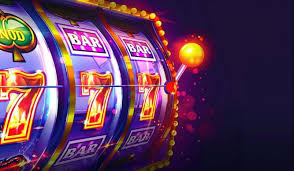
Exploring the Future of VR Gambling in the Metaverse
The rise of virtual reality (VR) and the concept of the Metaverse have significantly transformed various industries, with gambling being one of the most notable. As technology advances, the possibilities for immersive gaming experiences expand, merging the excitement of traditional gambling with the limitless potential of online environments. Players are no longer confined to physical casinos; instead, they can engage in sophisticated gambling experiences from the comfort of their homes, all while feeling as if they are in a real casino. For a comprehensive exploration of these developments, visit VR Gambling in the Metaverse https://betandreas-now.com/ru/.
The Metaverse: A New Frontier for Gambling
The Metaverse refers to a collective virtual space created by the convergence of virtually enhanced physical reality and physically persistent virtual reality. In simpler terms, it’s a digital universe where users can interact with each other and the computer-generated environment in real-time. This n-dimensional landscape presents vast opportunities for gambling, allowing players to dive into a fully realized, 3D gaming world that mimics real-life interactions.
Immersive Experiences Through VR
VR technology provides an immersive experience that significantly enhances user engagement in gambling activities. Players can don VR headsets and enter a virtual casino where they can interact with games and other players as they would in a physical setting. From poker tables crowded with avatars to slot machines that light up as players win, the visuals and interactivity create a compelling and realistic environment.
Advantages of VR Gambling
Several advantages come with VR gambling in the Metaverse including:
- Enhanced Social Interaction: VR casinos allow players to interact widely with others. They can chat, form friendships, and engage socially while playing, which is often lacking in traditional online gambling platforms.
- Realistic Casino Experience: The use of advanced graphics and sound effects in VR provides an authentic casino atmosphere that online gambling sites struggle to replicate.
- Accessibility: Users can access VR casinos from anywhere, making gambling more accessible than ever before. This convenience also caters to those who may not prefer visiting physical casinos.
The Technology Behind VR Gambling

At the heart of the VR gambling experience lies cutting-edge technology. Major components include:
- VR Hardware: Headsets like Oculus Rift, HTC Vive, and PlayStation VR offer robust user interfaces and the possibility of full immersion in virtual worlds.
- Software Development: Sophisticated software platforms are being developed to create seamless and engaging gambling experiences. This includes the programming of 3D models, interactions, and game mechanics.
- Blockchain and Cryptocurrency: Many VR gambling platforms are integrating blockchain technology to ensure fair play, transparency, and secure transactions. Cryptocurrencies are also gaining traction as a preferred method of payment in these environments.
Challenges and Risks
While the VR gambling landscape is promising, it does not come without challenges:
- Regulation: The legality of online gambling varies by region, and the introduction of VR adds further complexity to the regulatory landscape.
- Addiction Risks: The immersive nature of VR might enhance gambling addiction, posing a risk to players who might find it difficult to control their gaming habits.
- Technological Barriers: Not all players have access to sophisticated VR hardware, which may limit the user base for these platforms.
The Future of VR Gambling in the Metaverse
As the technology continues to evolve, the potential for VR gambling in the Metaverse is expansive. With advancements in AI, machine learning, and virtual reality, we are likely to see features such as personalized gaming experiences, adaptive AI dealers, and more social avenues for players to engage with each other.
Moreover, as VR technology becomes more affordable and accessible, it is expected that the demographic of gamers will widen, allowing more players to experience the unique offerings of VR gambling. The combination of virtual and augmented reality could further enhance the gameplay experience by incorporating elements of both worlds, giving players unprecedented engagement.
Conclusion
VR gambling within the Metaverse represents a revolutionary shift in the world of gambling. It merges technology, gaming, and social interaction in ways that were previously unimaginable. As this trend continues to grow, ensuring responsible gambling practices will be essential to protect players and maintain the integrity of the gaming industry. The future looks bright, and with it, the possibilities for immersive and thrilling gambling experiences are bound to expand.

